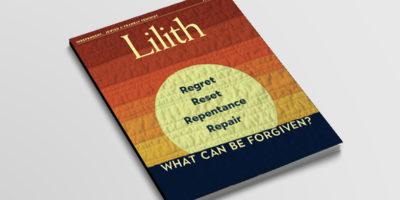
Our Communal Responsibility
All share in the guilt when destitute people have no good options.
Teshuvah, often translated as “repentance,” really means “returning” or “turning around.” This act is not a single one but a process of becoming accountable: we evaluate our actions, repent for the bad choices, apologize to those we have offended, and make amends for injuries. Because God cannot forgive us for what we have done to another human being, we must deal directly with the persons we have injured. We should be able to show progress by Yom Kippur; although, Maimonides, the tenth-century scholar, says we can be certain that our teshuvah is complete only when we encounter a similar situation and make a better choice. Teshuvah is not a once-a-year event, however. All year long, a confessional prayer is included in the weekday Amidah, but some of us need a deadline to get us moving….
Much is demanded of us when we repair a relationship, but returning to one another is healing and joyous.
During the multiple services of Yom Kippur, we recite confessions both silently as individuals and aloud as the corporate entity of the People Israel. We do so because “All Israel are guarantors for one another” (Shevuot 39a). When we confess aloud, we assume communal responsibility for one another’s actions. For example, if someone stole and we did not intervene, or if we did not offer destitute people an option other than theft, the whole community shares this guilt.
From Tales of the Holy of the Holy Mysticat by Rachel Adler.



